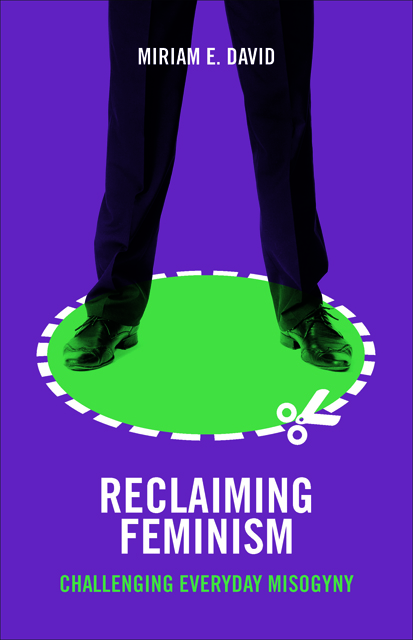Book contents
- Frontmatter
- Contents
- About the author
- Acknowledgements
- A note about the waves of feminism
- one Feminist reflections on a lifetime in academe
- two Changing feminism
- three Feminist pioneers
- four Gender and generations
- five Cultivating feminists
- six A feminist resurgence
- seven Feminists on campus
- eight Feminist fortunes
- References and select bibliography
- Index
eight - Feminist fortunes
Published online by Cambridge University Press: 15 April 2023
- Frontmatter
- Contents
- About the author
- Acknowledgements
- A note about the waves of feminism
- one Feminist reflections on a lifetime in academe
- two Changing feminism
- three Feminist pioneers
- four Gender and generations
- five Cultivating feminists
- six A feminist resurgence
- seven Feminists on campus
- eight Feminist fortunes
- References and select bibliography
- Index
Summary
As we have clearly seen, the ‘F-word’ has become centre-stage in global, international HE and media debates, even if it is still not taken seriously in British party politics. In this final chapter I want to reflect on the changing meanings of feminism in the context of changing public and political discussions about how we women should live our lives. These also take place in a massively transformed socioeconomic system towards global ‘academic capitalism’, that is, a system in which HE and gender, women and/or feminisms have a place and space, even if this is not as powerful a place as we, as feminists, would like to claim. The ‘selfie’ generation neatly encapsulates the ideas of self-reflection in public and digital media. Indeed, now inevitably being part of that generation, with my constant use of my iPhone, I want to review what has changed, and what I now feel about the sociocultural and political changes in women and men’s lives. How influential have we, as feminists, really been, and where might we go from where we are now, using feminist ideas and concepts?
I draw together the threads of the argument that I have been making about gender, women, equality and social justice to weave a complex picture of the changes with respect to men and women’s lives in families, education, in universities and in the public worlds of politics, the economy and work. I provide some contemporary illustrations of how second-wave feminism, and some of the articulate, public policy feminists who have been my subjects throughout the book, have been continuing to strive for policy change and activism in an increasingly hostile and neoliberal global world. I consider feminist fortunes, to paraphrase the lovely title of the socialist-feminist political philosopher Nancy Fraser’s (2013a) book, Fortunes of feminism: From state-managed capitalism to neoliberal crisis.
Fraser argues that, from her perspective as a second-wave feminist, second-wave feminism has gone through three acts, much like a play, and I tend to agree with her: from the WLM as ‘an insurrectionary force’ to shifting ‘its attention to cultural politics just as neo-liberalism declared war on social equality’ to now, ‘as neo-liberalism has entered its current crisis, the urge to reinvent feminist radicalism may be reviving’ (Fraser, 2013a, p 1).
- Type
- Chapter
- Information
- Reclaiming FeminismChallenging Everyday Misogyny, pp. 207 - 234Publisher: Bristol University PressPrint publication year: 2016

